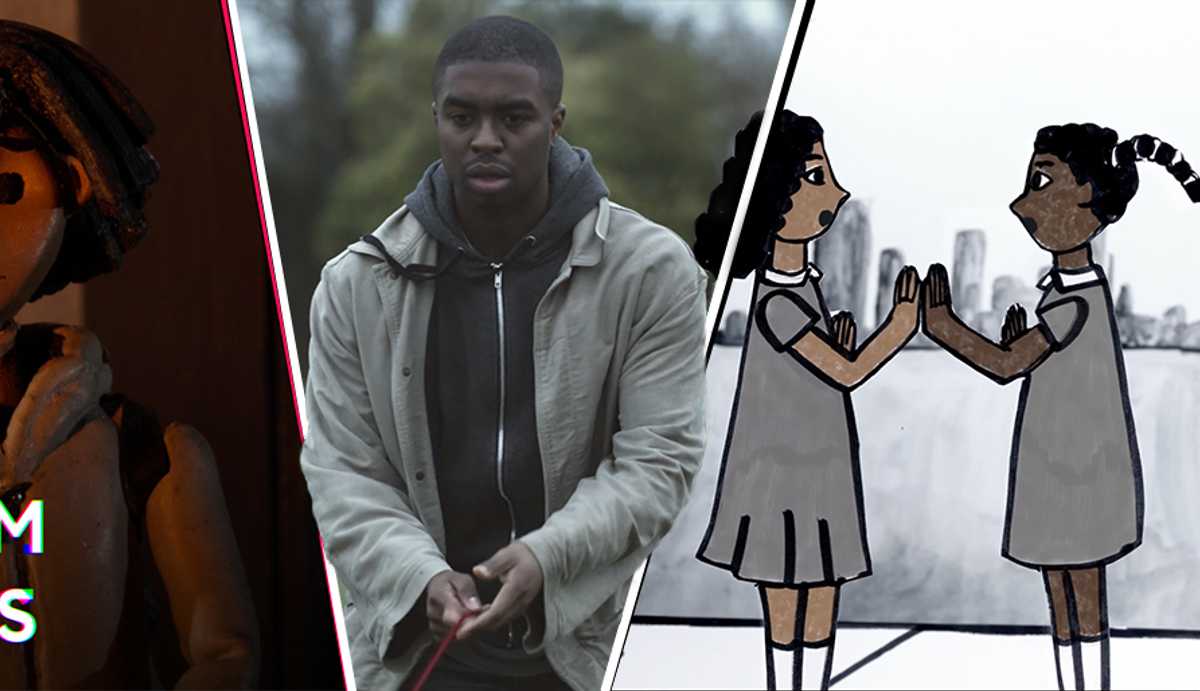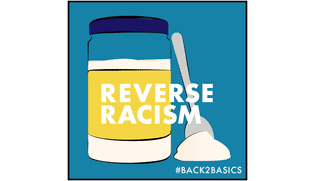We spoke to Chris Pugh, Jessica Ashman and Yero Timi-Biu, three directors whose short films are airing as part of Random Acts’ show on Channel 4’s late-night, post-pub serving of crazy and creative shorts. With three episodes left in the weekly six-part show, and Chris’ short airing on Monday 11 September, we wanted to find out more about his socially driven and poignant short String, as well as speak to Jessica and Yero about the intentionality behind their respective animated films Tenderfoot and Beneath the Surface. Here’s our interview.
*
Skin Deep: What is your film about and why did you create it?
Chris Pugh: On a basic level String is about a man following a piece of string that guides him through life. The film is about free will, choice, and the constraints that we deal with in our lives. The exact meaning of the string is deliberately left open for the viewer to interpret. I created String because I thought it was an interesting idea for a film to have both strong imagery and a good story that people would be able to relate to.
Jessica Ashman: Tenderfoot is a story about Toni, a 13-year-old girl who runs away from a fraught relationship with her mother. It was inspired by my mum’s relationship with her mother as a teenager, which sounded pretty tense from what she’d told me. Her words made me think of what it would be like to feel lost, yet still believe that you’re in control. I also wanted to combine the idea of a coming-of-age story with a sort of ‘long dark night of the soul’ journey, where becoming lost is the key to a transformation of self. The shadows in the city that Toni runs both towards and away from are part of Toni herself.
Yero Timi-Biu: Beneath the Surface is a short comedy-drama animation about two best friends growing up in the same world but experiencing it completely differently. At a hair salon in East London, 30-year-old Cherelle and Minomi reflect on their complex and distant twenty-five-year relationship, plagued with microaggressions, prejudice, heartbreak, and realisations.
The film is written, produced and co-directed by me, and animated and co-directed by Jessica, whom I should add is an award winning animator. The film explores the characters’ access and agency as black women of different skin tones.
I wrote the film in the summer of 2016 and we began production in the autumn, at a time when I was working with lots of women of colour. I was starting to notice that the way in which people treat black women when it comes to the differences in their skin tone isn’t spoken about enough. I actually interviewed multiple focus groups of young black and mixed-race women in the UK who have experienced body dysmorphia, misogynoir, everyday racism and colourism, and asked them a series of questions regarding their identity and/or their struggles (if any). Some of the answers were shocking, like out of this world horrific. I re-wrote these stories and turned them into a short piece of stylised fiction.
One theme that crept up a lot in my research was that fellow people of colour were not just on the receiving end of microaggressions, but were dishing them out as well. We talk quite a lot of microaggressions that black people receive in a white world, but never about microaggressions from people supposedly going through the same struggle as us.
SD: Why did you choose the short film format to tell your story?
CP: String had to be a short film: the idea is so visual that I don’t think it would really work as well in other mediums. Telling a story in a short space of time was something that I was interested in doing and allowed me to explore the world of String in a way that wouldn’t have been practical in a longer film.
JA: Well, as someone who works with animation, anything longer than a short to portray an idea is a bit of an undertaking! It’s a time-consuming medium. This was my final project for my animation master’s course at the Royal College of Arts, where you only really have time to make a short. I also just love shorts as a vehicle to telling complete stories and getting ideas out there, before moving on to the next idea.
YTB: I received some funding from Channel 4’s Random Acts and ICA London’s STOP PLAY RECORD scheme for 16-24-year-old film-makers to write, produce and direct a short animation. When I applied, I was working at an animation studio where I was finding some of the conversations really uncomfortable. It was when we were watching the Oscars in the office and the #OscarsSoWhite conversation was happening, that I found myself squirming in my seat feeling too afraid to say anything. So I thought, ‘Okay I’ve got to make something!’, which is how Beneath the Surface came about. Over the course of the first weekend in September, it was viewed 16,000 times on Facebook alone. I think that shareable, short and engaging content is the way forward, and I’m so pleased with the response that people have had to the film.
SD: Both Tenderfoot and Beneath the Surface are animated films, can you talk to us about the intended audiences for your film?
JA: The audience I had in mind for this film was young women in their teens or on the cusp of becoming a teen. At the same time, I do think the story of Tenderfoot is universal. In terms of the independent short animated film world, the majority of films would be of interest to adults. Animation is in effect a genre-less genre, because it is just about using animation to tell a story: you can literally do anything you want, if you can imagine it. I like that freedom. I was drawn to animation when I was 18 (a good few years ago now) and haven’t looked back.
YTB: I picked animation because I felt like it was the only medium that had endless possibilities for storytelling (within my budget!). There’s something about creating a world that’s similar to the real world. The film is a social issues-based film, but I wanted to tell the story of two friends going through turmoil in a light-hearted way. It would’ve been really hard to cast characters that looked exactly the same from childhood to adulthood.
I also wanted to make a film with an accessible message that could be understood by an audience that perhaps hate being called racist more than racism itself. I got a really nice message from one of my mum’s best friends, a white woman, who said that even as an anti-racism, lefty liberal this film was uncomfortable viewing for her and that she thought it should be shown in all schools. I honestly think this film is simply a conversation starter for people who may not have experienced overt racism but have had the same awkward and uncomfortable experiences as these characters. There are so many people I’m not friends with any more from my school years, whom I have let go of, mainly because of their behaviour. Maybe I should slide the link into their DMs….
SD: Chris, your film is not animated but it is also by no means a “realistic” film. Can you talk to us about your choice to have no dialogue in the film?
CP: Yeah, the choice not to have dialogue was made at the moment of inception of String. I think that dialogue would have disrupted the atmosphere of the film. We even went so far as to remove the background noise in the supermarket scene and cut out anything that sounded like talking, just to keep the mood. The lack of dialogue made it easier to focus on the key aspects of the audio and visual storytelling.
SD: Finally, what are your favourite short films, and films that you would recommend we check out?
CP: That’s a hard question. I’m not sure that I could choose a favourite. I would say that I have enjoyed watching the Random Acts shorts both online and in the TV show, as well as shorts I have seen at events. There are clearly a lot of talented filmmakers out there at the moment.
JA: Ah, it’s really hard to choose! I love all sorts of shorts, but examples of two animated films that I love are: Sarina Nihei’s Small People With Hats, which is hilarious and mad and everything I love in a short. She’s also such a hard worker and each frame is painted individually by hand. I also love Mikey Please’s The Eagleman’s Stag because it’s funny, philosophical and beautiful, and has inspired me quite a lot as an animator.
YTB: My favourite short film is Ezekiel by fellow Random Acts director, Luke Monoghan It looks at the life of the youngest ordained minister in America, and it’s magic.
String will air on episode 4 of the Random Acts series on Monday 11 September at midnight on Channel 4. You can watch more Random Acts shorts here. String and Beneath the Surface will be touring nationally as part of the Playback exhibition at the ICA. Get more info here.




